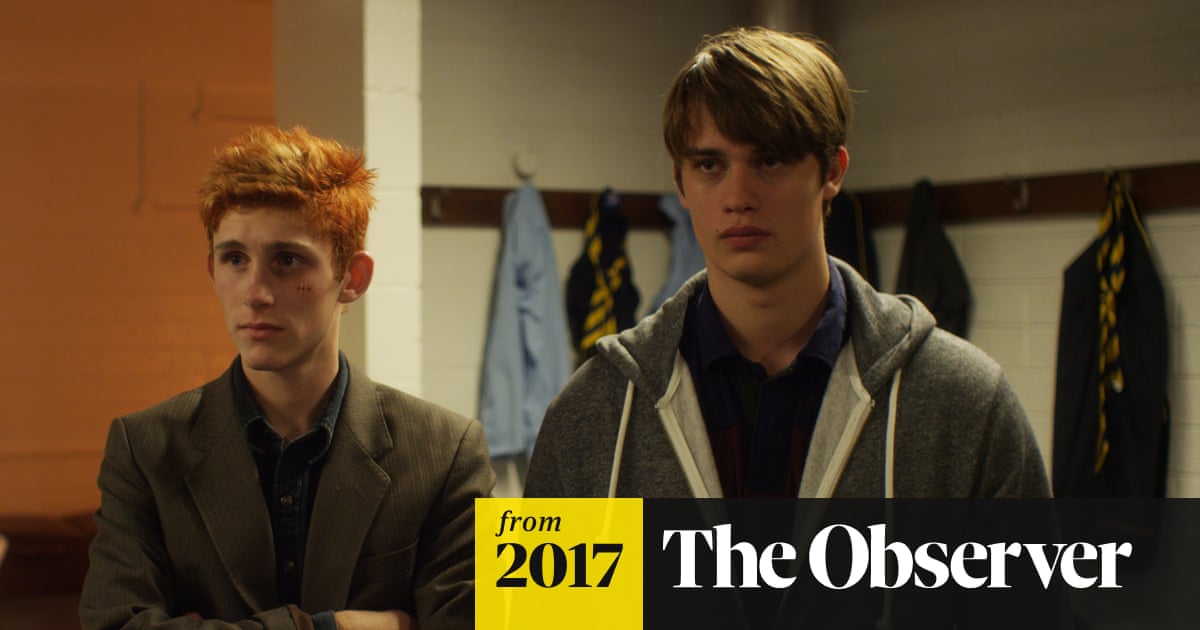Handsome Devil: A Heartfelt Irish Drama About Identity, Friendship, and Belonging
Released in 2016, Handsome Devil is an Irish coming-of-age drama directed and written by John Butler. The film has been praised for its touching story, nuanced performances, and sensitive exploration of themes such as individuality, sexuality, and the courage to stand apart from conformity. Set against the backdrop of an elite Irish boarding school where rugby reigns supreme, the film tells a heartfelt story of friendship that resonates far beyond the sports field.
The story follows Ned Roche (Fionn O’Shea), a witty yet socially isolated teenager who feels out of place in his rugby-obsessed school. Known for his sarcasm and lack of interest in sports, Ned is often bullied by his peers and viewed as an outsider. His life takes an unexpected turn when he is forced to share a room with Conor Masters (Nicholas Galitzine), the school’s new star rugby player. Initially, Ned assumes that Conor will embody the same stereotypical macho attitudes as his classmates. However, as the two begin to bond, Ned discovers that Conor is not only kind and intelligent but also hiding his own struggles and secrets.

As their friendship deepens, the film explores the pressures of masculinity and conformity within the school environment. Rugby is presented as both a cultural obsession and a symbol of exclusion, where anyone who fails to fit the mold risks ridicule. Conor’s hidden sexuality and Ned’s refusal to suppress his individuality collide with the rigid expectations of the school, particularly under the scrutiny of their strict headmaster Pascal (Moe Dunford). The only adult figure offering guidance is the English teacher Mr. Sherry (Andrew Scott), who encourages the boys to embrace authenticity and courage rather than conforming to societal pressures.
One of the most powerful aspects of Handsome Devil is its portrayal of friendship as an act of resistance. While the film touches on romance and sexuality, its central relationship is not romantic but platonic. This choice allows the narrative to highlight the importance of solidarity, empathy, and the ways in which friendship can help young people navigate identity and adversity. The connection between Ned and Conor becomes a metaphor for finding strength in vulnerability and for challenging environments that demand uniformity.
Stylistically, the film blends humor with poignancy. Ned’s witty narration provides comedic relief, while the cinematography captures both the isolating structures of the school and the warmth of intimate moments between characters. The performances are another highlight: Fionn O’Shea portrays Ned with sharpness and vulnerability, Nicholas Galitzine brings depth and sensitivity to Conor, and Andrew Scott delivers a compelling performance as a mentor figure whose own life experiences inform his wisdom.

Handsome Devil received critical acclaim at film festivals and among audiences for its sincerity and uplifting message. Critics praised its ability to tackle issues of homophobia, bullying, and toxic masculinity without losing its sense of optimism. Rather than relying on tragedy, the film offers hope, showing that acceptance and authenticity are possible even in difficult environments.
In conclusion, Handsome Devil is a moving and inspiring film that celebrates individuality, friendship, and courage. It challenges stereotypes about masculinity and sexuality while reminding viewers of the importance of compassion and understanding. Through its humor, heart, and humanity, the film stands as one of the most significant Irish contributions to LGBTQ+ cinema in recent years.
-1751871512-q80.webp)


